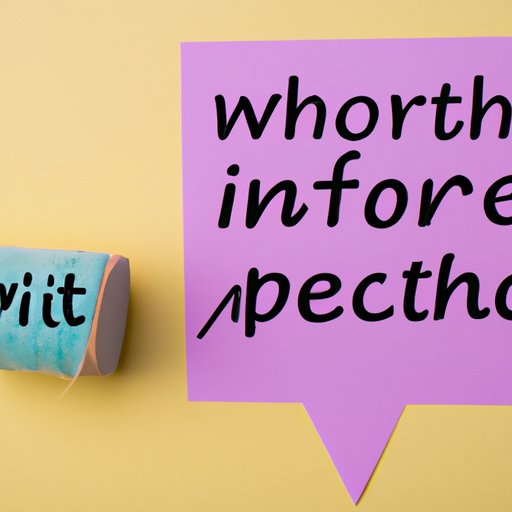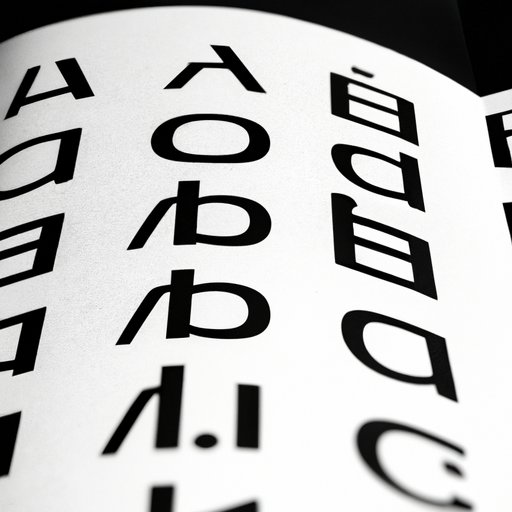Exploring “Which”: The Multifaceted Word
Have you ever wondered how a single word can have multiple meanings? The English language is full of words like this, and “which” is no exception. This innocuous pronoun/ determiner may seem simple, but its multifaceted meanings and complex usage can lead to confusion if not used correctly. In this article, we will explore the different meanings of “which,” its importance in effective communication, and how to use it properly.
Exploring the Multifaceted Meanings of the Word “Which”
To begin with, let’s explore the different meanings of “which.” The word “which” can be used as an interrogative pronoun, relative pronoun, or determiner. As an interrogative pronoun, “which” is used to ask a question, like “Which one do you want to buy?” As a relative pronoun, “which” is used to introduce a clause that describes or provides more information about a noun. For example, “The dress, which was white, looked stunning.” As a determiner, “which” is used to specify a particular thing or person from a set. For instance, “Which car do you want to drive?”
The different meanings of “which” can be confusing, but they are essential to proper communication. Without the correct use of “which,” sentences can become ambiguous and confusing.

The Importance of Using “Which” in Effective Communication
Using “which” correctly is important in communication because it clarifies what you are talking about. For example, “The dress that was white looked stunning” is different from “The dress, which was white, looked stunning.” In the first sentence, we are describing a specific white dress, while in the second sentence, we are providing additional information about the dress that happens to be white. Misusing “which” can lead to confusion or ambiguity in a sentence, which can affect the clarity of your message and impede effective communication.
Frequently Misused Words: How to Properly Use “Which”
Despite the importance of using “which” correctly, this word is often misused in English writing and speech. One common mistake with “which” is confusing it with “that.” Remember, “that” is used to introduce a necessary clause, while “which” is used to provide more information. Here are some tips and guidelines to help you correctly use “which” in different situations:
- Use “which” when the clause is non-restrictive or adds additional information to the sentence.
- Use “which” when you are referring to a specific item from a set.
- Use “that” when the clause is restrictive or essential to the sentence’s meaning.
- Avoid using “which” as a conjunction to join two independent clauses.
The History and Evolution of the Word “Which”
The word “which” has an interesting history that dates back to the Old English period. The word “hwaet,” which means “what,” was originally used to ask a question. Over time, “hwaet” was replaced by “hwich,” and eventually, “which” became the standard word. The meaning and usage of “which” have also changed over time, reflecting changes in English grammar and syntax.
An Analysis of “Which” in Literature and Poetry
As with any word, “which” has been used in literature and poetry to convey meaning. In the famous poem “The Road Not Taken” by Robert Frost, the line “Two roads diverged in a wood, and I— I took the one less traveled by, And that has made all the difference” uses “which” implicitly in the phrase “the one less traveled by.” By using “which,” Frost emphasizes the importance of making a choice, as the speaker chooses a road that is less traveled and thus different from the norm.
The Top 10 Phrases Using the Word “Which”
Here are the top 10 phrases or idioms using the word “which”:
- “Which way the wind blows” – referring to uncertain or unpredictable circumstances
- “Which came first, the chicken or the egg?” – referring to a question with no clear answer
- “In which case” – referring to a hypothetical situation
- “Which is which?” – referring to a difficult choice or distinguishing between similar things
- “To each his own, said the old lady as she kissed the cow” – referring to personal preferences or opinions
- “Which side of the bread is buttered?” – referring to a situation where there is an obvious advantage or benefit
- “Which end is up?” – referring to a confusing or disorienting situation
- “Which reminds me” – referring to a sudden realization or memory
- “Which came as no surprise” – referring to an expected or unsurprising outcome
- “Which one is the odd one out?” – referring to distinguishing one thing as different from the rest
The Impact of Technology on the Usage of the Word “Which”
Technology has revolutionized the way we communicate, and it has had an impact on the usage of “which” in modern communication. In text messages and social media, where the character limit is limited, people tend to use shorthand and abbreviations, often leaving out articles like “which.” While this might save time and effort, it can lead to confusion and ambiguity. On the other hand, technology has made it easier to access and use correct grammar and spelling through tools like Grammarly.
Conclusion
In conclusion, the word “which” is an essential part of the English language, and its multifaceted meanings and usages can make communication clearer and more efficient. Despite its importance, “which” is often misused, leading to confusion and ambiguity. By understanding the different meanings of “which” and following some basic guidelines, you can use it correctly in your writing and speech. So, take the time to learn about “which,” and use it properly in your communication.
